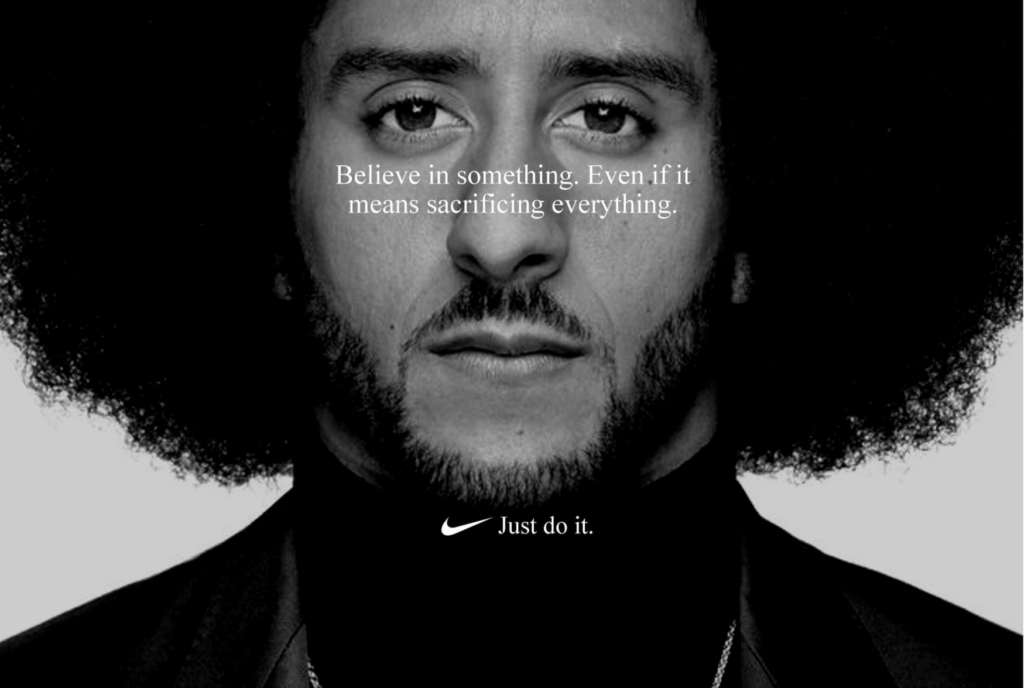Nike’s “Dream Crazy” campaign featuring Colin Kaepernick undoubtedly left a profound impact, resonating with me on both emotional and intellectual levels. Kaepernick’s narration, urging individuals to believe in something at the cost of everything, went beyond the boundaries of traditional advertising, creating a narrative that transcended sports and entered the realm of social activism.
The campaign instilled in me a sense of empowerment and resilience. Kaepernick’s bold stance against racial injustice and police brutality served as a powerful reminder of the potential for athletes and public figures to leverage their influence for meaningful change. It wasn’t merely a promotion of athletic prowess; it evolved into a rallying cry for individuals to stand up for their beliefs, fostering a connection between personal conviction and collective action.
However, the campaign’s impact wasn’t confined to inspiration alone; it sparked controversy and ignited debates that reverberated through society. The polarized opinions reflected the potency of advertising as a cultural force, capable of shaping public discourse. Nike’s decision to delve into a politically charged issue demonstrated the brand’s willingness to take risks and address pressing societal concerns, even at the risk of alienating certain segments of their audience.
On a personal level, the campaign prompted introspection about my values and the role of corporations in advocating for social causes. It spurred meaningful conversations with friends and family about the intersection of sports, activism, and corporate responsibility. While I didn’t rush to purchase Nike products solely due to the ad, it undeniably influenced my perception of the brand, associating it with a commitment to social justice.
In the broader context, “Dream Crazy” represented a paradigm shift in advertising. It showcased how brands could go beyond traditional marketing strategies, embracing a more socially conscious approach. The campaign exemplified the evolving landscape where companies recognized the importance of taking a stance on societal issues and connecting with consumers on a deeper, more emotional level. Nike’s “Dream Crazy” left an enduring mark on my understanding of the potential for advertising to drive meaningful societal conversations and shape collective perspectives.
